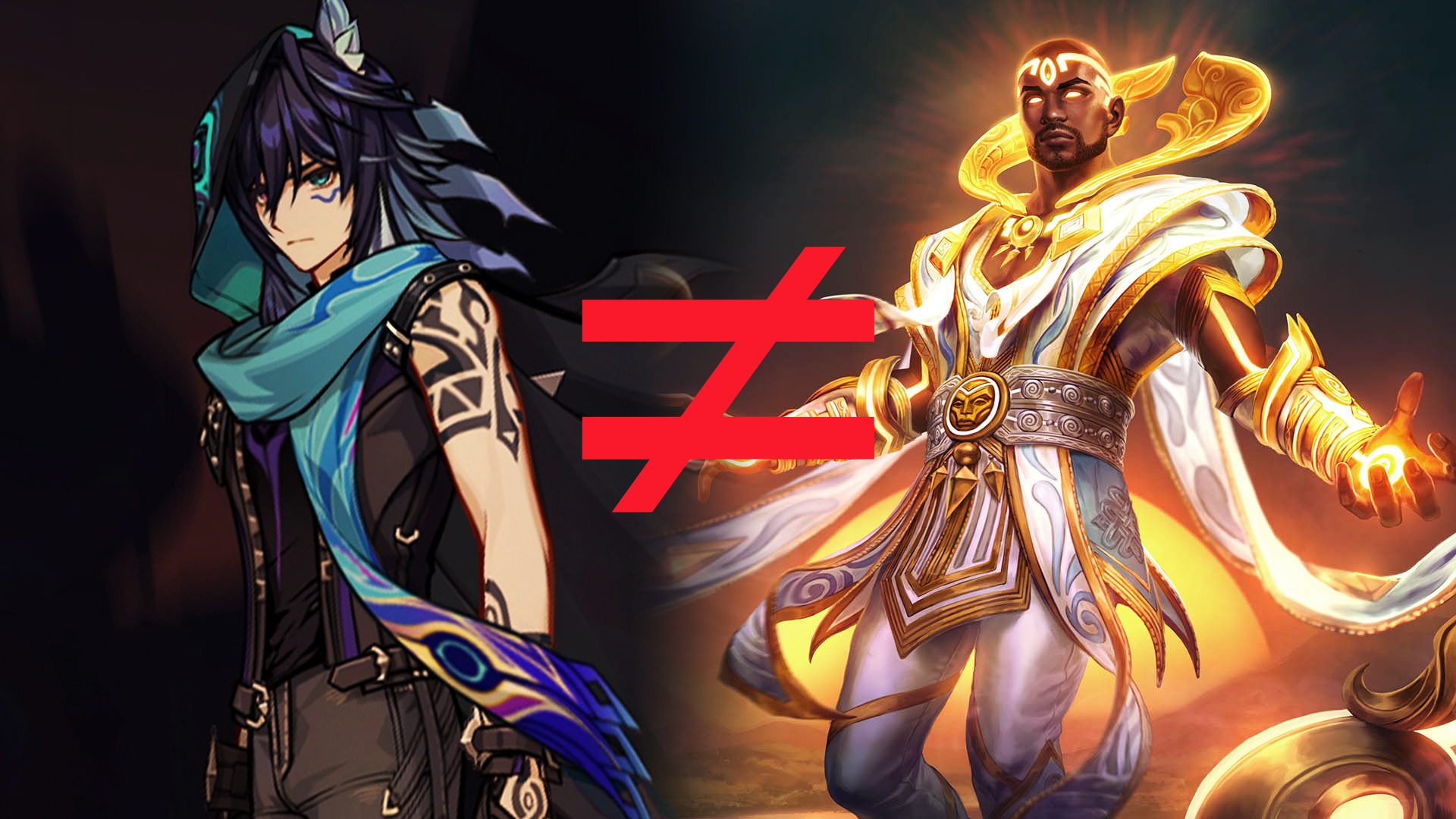
As a gamer with a deep appreciation for cultural representation in games, I’m deeply disappointed and disheartened by the ongoing issue of whitewashing in Genshin Impact, specifically regarding the Natlan characters.
Genshin Impact is once again in hot water for whitewashing characters from Natlan.
As an avid fan of Genshin Impact, I was thrilled when the game announced new characters hailing from the upcoming region, Natlan. However, my excitement quickly turned to disappointment as I scrolled through social media and saw an outpouring of frustration from fellow fans and even voice actors. The reason for their discontent? Allegations of “whitewashing” the new character designs. It’s disheartening to see this issue arise once again in our beloved game.
What is Natlan in Genshin Impact?
Natlan is one of the regions in Teyvat, the world wherein Genshin Impact takes place in. Mentions and appearances of the region during various teasers heavily reference Latin American, African, Hispanic, and Aboriginal Australian cultures.
Even the region’s name, “Natlan,” is likely derived from either Aztec or Nahuatl cultures.
Many people had anticipated that the characters originating from that region would have suitable skin tones based on their background. It was reasonable to assume so. However, the latest “Ignition Teaser” for Genshin Impact unveiled several Natlan characters, and unfortunately, they appeared to be deficient in melanin pigmentation.
Did Genshin Impact whitewash Natlan characters?
It appears that some members of the speaking community hold the view that yes, certain characters from Natlan in Genshin Impact have undergone a process of making them appear more white. Moreover, this controversy is not a new one for Genshin Impact, as similar concerns have been raised before.
The fictional area of Sumeru within the game draws significant influence from the cultures of South Asia and the Middle East. Regrettably, characters originating from this region often fail to exhibit accurate skin tones in the representation.
Voice actors speak out on Genshin Impact whitewashing
Valeria Rodriguez, the voice actor for Sucrose, was an early advocate for this issue. She emphasized, “When incorporating real-life deities or cultural elements into your work, it’s essential to show respect.”
A comparison photo was shared on social media, featuring Ọlọrun as depicted by the god-based Multiplayer Online Battle Arena (MOBA) game SMITE, alongside Genshin’s portrayal of Ororon. Additionally, Rodríguez reshared a discussion detailing the origins of each Natlan character’s name in the thread, along with potential negative consequences due to their misnamed representations.
Alejandro Saab, representing the character Cyno, reacted to this with the comment, “I wasn’t aware of that connection… Oh dear, that’s unfortunate.” Additionally, he made a post about it on his VTuber X account.
If a game borrows extensively from real-world cultures and creates a character based on the Yoruba religion’s supreme deity but portrays this figure as pale and resembling Sasuke or Batman, people have every reason to ask for improved representation. This is particularly important when the game boasts of catering to a global audience. I encourage you all to continue voicing your concerns, and I hope they take notice.
Bill Butts, the voice actor for Owlbert in the game Honkai: Star Rail from HoYoverse, made a more indirect statement. He posted, “The beauty of dark skin should not be questioned by anyone.”
Content creators, fans join in criticism
Content creators and the general fanbase have also been vocal about the issue.
“People have every right to be upset [and] call it out,” posted dish.
Zy0x, a well-known figure in the Genshin Impact community, hasn’t explicitly addressed the problem himself, but instead, he’s been sharing significant messages from other community members regarding the issue.
This X post regarding Ororon/Olorun is another that Zy0x reposted.
Individuals hailing from the cultures and belief systems that inspired the names in Genshin Impact expressed feelings of disrespect and misunderstanding.
“From the perspective of a representative of the Chasca culture, I’m disappointed by the expected response to such an offensive remark towards my people.”
As a passionate follower of New Zealand’s rich cultural heritage, I would express that Mavuika, being named after the Maori deity Mahuika, unfortunately lacks authentic representation for some.
Read More
- Clash Royale Best Boss Bandit Champion decks
- Vampire’s Fall 2 redeem codes and how to use them (June 2025)
- World Eternal Online promo codes and how to use them (September 2025)
- Best Arena 9 Decks in Clast Royale
- How to find the Roaming Oak Tree in Heartopia
- Country star who vanished from the spotlight 25 years ago resurfaces with viral Jessie James Decker duet
- Mobile Legends January 2026 Leaks: Upcoming new skins, heroes, events and more
- M7 Pass Event Guide: All you need to know
- Solo Leveling Season 3 release date and details: “It may continue or it may not. Personally, I really hope that it does.”
- ATHENA: Blood Twins Hero Tier List
2024-07-14 05:10